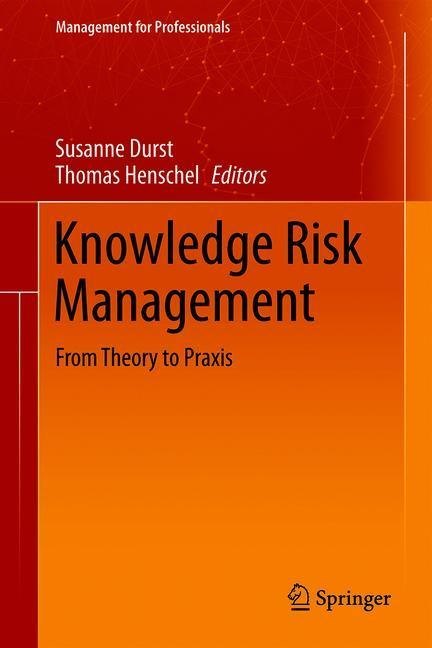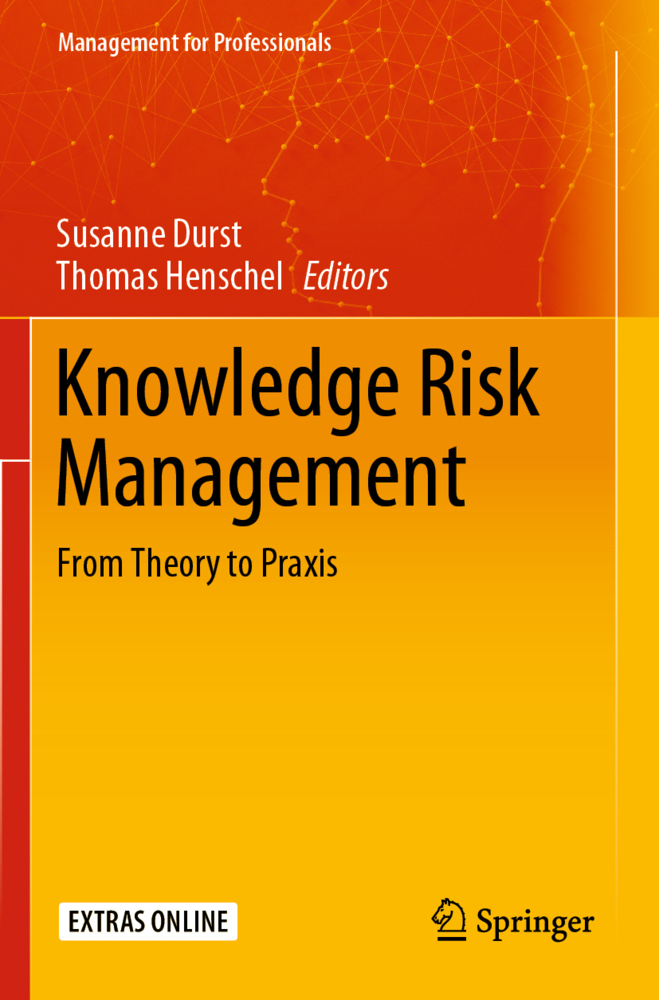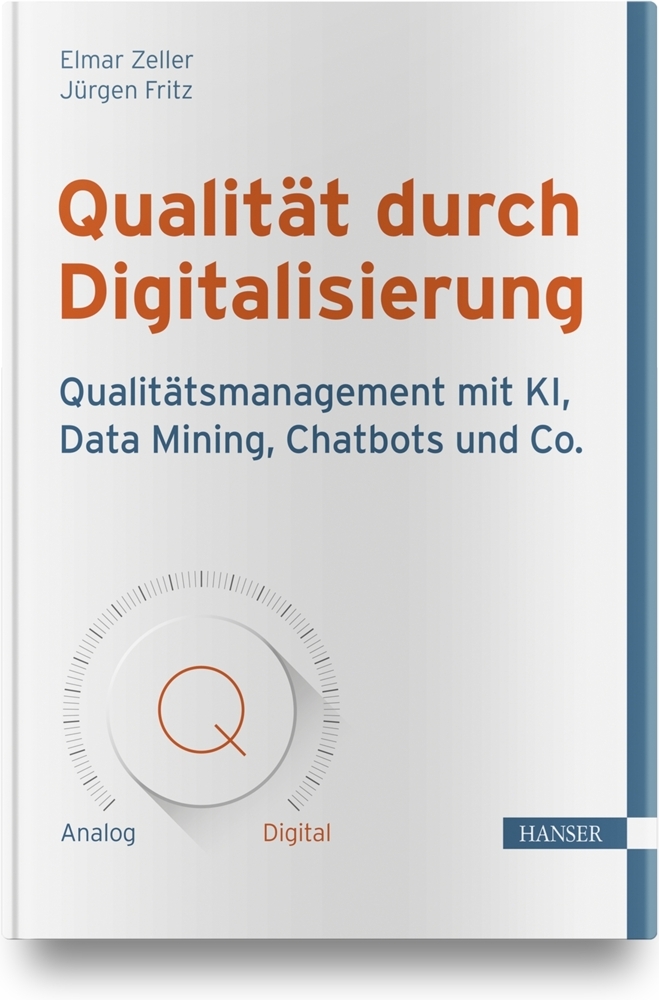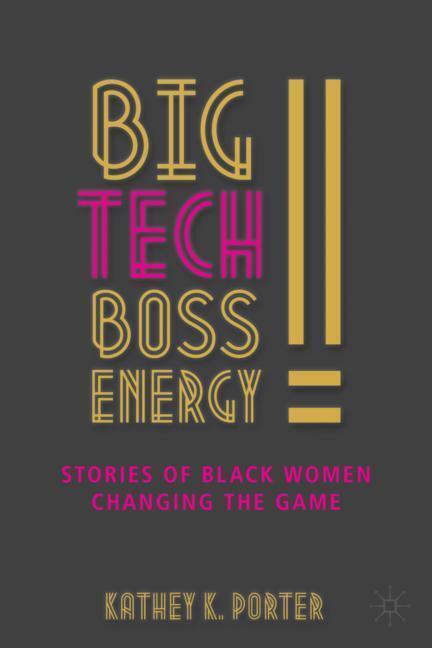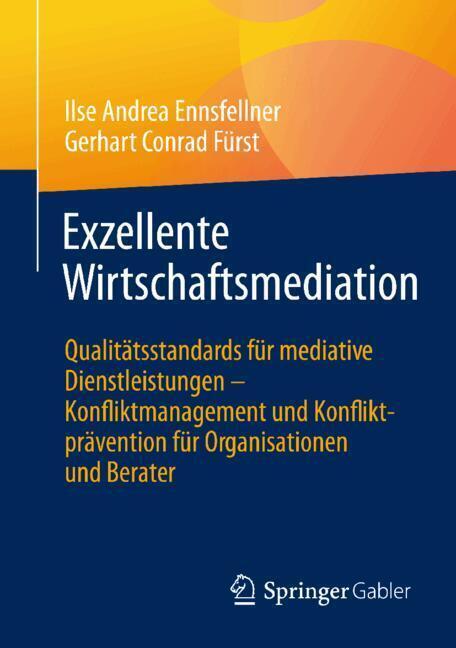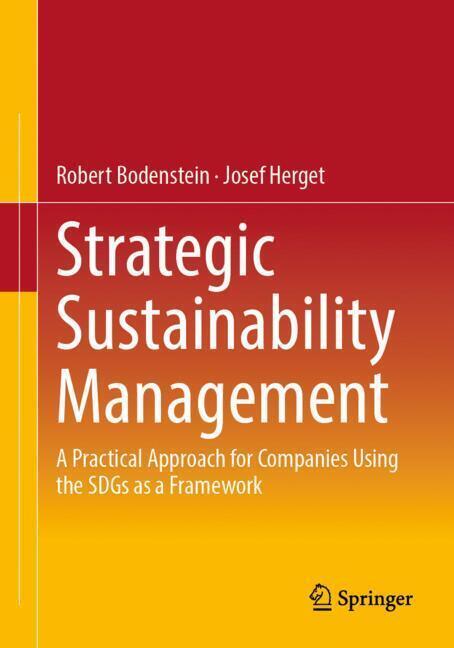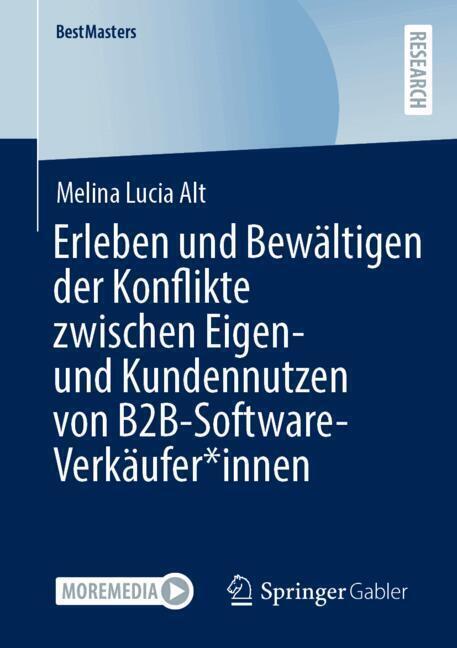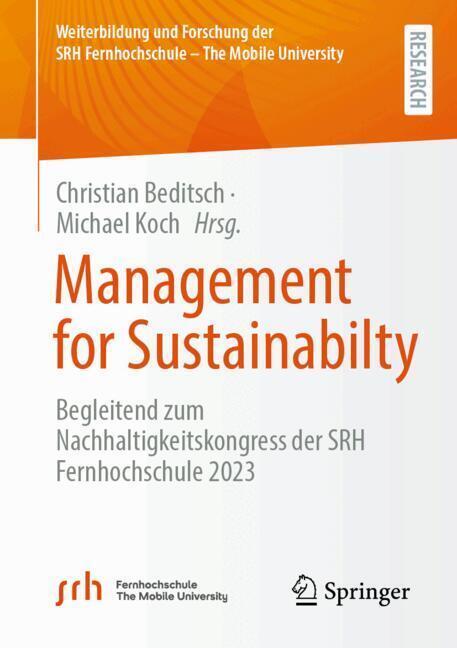Knowledge Risk Management
From Theory to Praxis
This book provides an in-depth introduction to knowledge risk management (KRM) as well as methods, tools and cases to address knowledge risk management issues in both the public and private sector. It focuses on the integration of knowledge risks into the holistic risk management of organizations. In addition, this book is accompanied by an external website that includes additional checklists, videos and company cases. The combination of a sound theoretical framework along with practical instruments, tools and ancillary materials makes this book a unique, interactive book for professionals, managers, and executives as well as students, academics and policy makers.
Susanne Durst is Full Professor of Management at the Department of Business Administration at Tallinn University of Technology (Estonia). Her research interests include small business management, SME succession/transfers, knowledge (risk) management, and corporate governance. She has been conducting several national and international research projects. Her work has been awarded different awards and has been published in international peer-reviewed journals. Before joining academia, she worked with private enterprises.
Thomas Henschel is a Professor at HTW Business School, Hochschule für Technik und Wirtschaft Berlin. His previous research has focused mainly on corporate governance and risk management. He has published his works in journals such as International Journal of Entrepreneurship and Innovation, International Journal of Entrepreneurship and Small Business, and Interdisciplinary Journal of Economics and Business Law, among others.
Susanne Durst is Full Professor of Management at the Department of Business Administration at Tallinn University of Technology (Estonia). Her research interests include small business management, SME succession/transfers, knowledge (risk) management, and corporate governance. She has been conducting several national and international research projects. Her work has been awarded different awards and has been published in international peer-reviewed journals. Before joining academia, she worked with private enterprises.
Thomas Henschel is a Professor at HTW Business School, Hochschule für Technik und Wirtschaft Berlin. His previous research has focused mainly on corporate governance and risk management. He has published his works in journals such as International Journal of Entrepreneurship and Innovation, International Journal of Entrepreneurship and Small Business, and Interdisciplinary Journal of Economics and Business Law, among others.
1;Preface;7 2;Introduction;8 2.1;Outline;8 2.2;Structure of the Book;8 2.3;Part I;9 2.4;Part II;9 2.5;Part III;9 2.6;Part IV;10 2.7;Part V;10 2.8;Conclusion;11 3;Contents;12 4;Editors and Contributors;14 5;Knowledge Risk Management-State of Research;16 6;1 Knowledge Risk Management-State of Research;17 6.1;Abstract;17 6.2;1 Introduction;17 6.3;2 Risks;18 6.4;3 Knowledge Risks;19 6.5;4 Risk Management and Knowledge Risk Management;20 6.6;5 The Current Body of Knowledge Regarding KRM;21 6.7;6 Conclusion;22 6.8;References;22 7;Knowledge Risk Management in Private Organizations;25 8;2 Knowledge Risk Management in Companies Offering Knowledge-Intensive Business Services;26 8.1;Abstract;26 8.2;1 Introduction;27 8.3;2 Knowledge Risks and Their Management;28 8.4;3 Methodology and Research Questions;29 8.5;4 Research Results;31 8.6;5 Concluding Remarks;40 8.7;Acknowledgements;41 8.8;References;41 9;3 Toyota Kata Approach-A Way to Mitigate Knowledge Risks in Start-Ups;45 9.1;Abstract;45 9.2;1 Introduction;46 9.3;2 Theoretical Background;46 9.3.1;2.1 Knowledge Management;46 9.3.2;2.2 Knowledge Risk Management;47 9.3.3;2.3 The Toyota Kata Concept;47 9.3.3.1;2.3.1 The Improvement Kata-a Standard of How to Develop a Continuous Improvement Capability Systematically;47 9.3.3.2;2.3.2 The Coaching Kata;50 9.4;3 Methodology;50 9.5;4 Results;52 9.5.1;4.1 First Kata Cycle;52 9.5.2;4.2 Second Kata Cycle;54 9.5.3;4.3 Third Kata Cycle;55 9.5.4;4.4 Fourth Kata Cycle;56 9.6;5 Final Thoughts;56 9.7;References;58 10;4 Knowledge Risk Management in Two-Tier HRM Structures;60 10.1;Abstract;60 10.2;1 Introduction;61 10.3;2 Theoretical Support;63 10.3.1;2.1 Knowledge Risk Management;63 10.3.2;2.2 Two-Tier HRM Structures;63 10.3.3;2.3 The Areas and Types of Knowledge Risk and Management Strategies in Two-Tier HRM Structures;66 10.3.3.1;2.3.1 Knowledge Risk Areas Framework;66 10.3.3.2;2.3.2 Customer-Related Knowledge Risk;66 10.3.3.3;2.3.3 Knowledge Risk Taxonomy;67 10.3.3.4;2.3.4 Knowledge Risk Management Strategies;67 10.4;3 Research Method;68 10.5;4 Results;69 10.5.1;4.1 The Consciousness About the Effects of Two-Tiered HRM Structures on Knowledge Risks;69 10.5.2;4.2 Areas of Knowledge Risks;71 10.5.3;4.3 Types of Knowledge Risk;72 10.6;5 Discussion and Conclusion;73 10.6.1;5.1 Theoretical Implications, Limitations and Recommendations;75 10.6.2;5.2 Managerial Implications Checklist;76 10.7;References;77 11;5 Practical Aspects of Knowledge Risk Management in Corporate Finance for Family Firms;80 11.1;Abstract;80 11.2;1 Introduction;81 11.3;2 Financing Processes in Family Firms;81 11.3.1;2.1 The Definition of a Family Firm;82 11.3.2;2.2 The Finance Function Within the Family Firm;82 11.3.3;2.3 The Financing Process in Family Firms;83 11.4;3 Critical Knowledge Risk Factors and Their Practical Impact in a Financing Process;83 11.4.1;3.1 Internal Knowledge Risks;84 11.4.1.1;3.1.1 Knowledge Attrition;84 11.4.1.2;3.1.2 Knowledge Waste;84 11.4.1.3;3.1.3 Knowledge Hoarding and Knowledge Hiding;85 11.4.1.4;3.1.4 Unlearning and Forgetting;85 11.4.1.5;3.1.5 Knowledge Gaps;86 11.4.2;3.2 External Knowledge Risks;87 11.4.2.1;3.2.1 Knowledge Leakage;87 11.4.2.2;3.2.2 Knowledge Spillover;87 11.4.3;3.3 Intersectional Knowledge Risks;88 11.4.3.1;3.3.1 Knowledge Outsourcing Risks;88 11.4.3.2;3.3.2 Knowledge Loss;88 11.5;4 Knowledge Risk Mitigation Management for Financing Processes;89 11.5.1;4.1 The Concept;89 11.5.2;4.2 The Framework;90 11.5.2.1;4.2.1 People;90 11.5.2.2;4.2.2 Management;90 11.5.2.3;4.2.3 Governance;91 11.5.2.4;4.2.4 Infrastructure;92 11.6;5 Framework Overview;93 11.7;6 Conclusion;94 11.8;References;94 12;Knowledge Risk Management in Public Organizations;97 13;6 Knowledge Risk Management for State-Owned Enterprises-Indian Scenario;98 13.1;Abstract;98 13.2;1 Introduction;99 13.3;2 Knowledge Management (KM) in the State-Owned Enterprises;100 13.3.1;2.1 Knowledge Management (KM) in the SoEs-Generic Framework;101 13.3.1.1;2.1.1 Need for a Generic Framework;101 13.3
| ISBN | 9783030351212 |
|---|---|
| Artikelnummer | 9783030351212 |
| Medientyp | E-Book - PDF |
| Copyrightjahr | 2020 |
| Verlag | Springer-Verlag |
| Umfang | 266 Seiten |
| Sprache | Englisch |
| Kopierschutz | Digitales Wasserzeichen |

